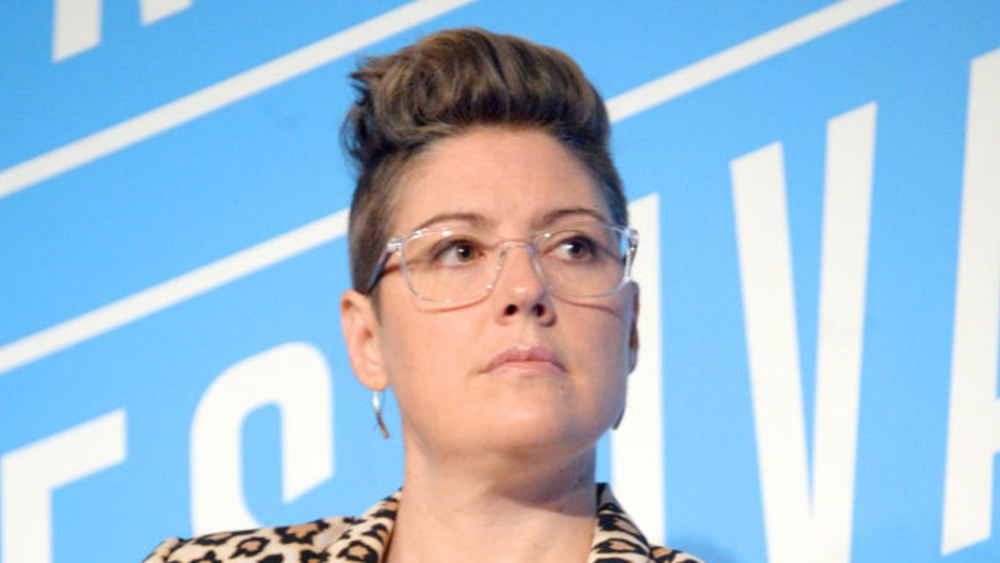
After Brendan Hoffman’s short run as chief executive officer of Wolverine Worldwide ended in 2023, the veteran fashion executive had a “Moneyball” moment during a meeting with Christine Hunsicker, the cofounder of CaaStle who raised more than half a billion dollars arguing that apparel brands would do better to rent inventory out instead of cutting price.
That moment — a reference to the Michael Lewis book on how the savvy use of data changed baseball — altered the course of Hoffman’s career and led him to link up with Hunsicker to cofound P180, which went on to forge a rental partnership with Elyse Walker, make an investment into Altuzarra and acquire control of Vince Holding Corp.
The run didn’t last long.
In a lawsuit filed in New York State Court on Friday, P180 said CaaStle claimed to have over 500,000 rental subscribers and that it was processing over 4 million items a month.
“In reality, there were merely hundreds of subscribers, not hundreds of thousands,” the suit said. “CaaStle was hemorrhaging money. It seems to have spent upwards of $5 for every $1 it brought in in revenue.”
The veil was torn back late last month when Hunsicker left CaaStle as CEO and was accused of showing doctored financials to investors as she drummed up the money needed to keep the company afloat.
Now CaaStle is running on bridge financing as it considers a Chapter 11 filing and P180, which is 75 percent owned by Hoffman, is suing CaaStle for fraud and more, saying Hunsicker and others at CaaStle led it down a path it would have never followed if it knew the company were little more than smoke and rented mirrors.
“Nothing about CaaStle was true,” said P180 in the suit. “CaaStle is one of the largest frauds in history and will live in infamy alongside the likes of Theranos, [Bernie] Madoff and Enron.”
That’s a very different look from just a few months ago.
“CaaStle appeared to be a huge success — an innovative technology company managing an ecosystem of hundreds of thousands of subscribers for multiple brands with hundreds of millions of dollars in revenue and a valuation of over $1.4 billion,” the suit said.
But while the suit said CaaStle’s board learned of its “huge financial issues” in December, P180 was kept in the dark, and actually pulled further in as it made its biggest deal yet, securing control of Vince, where Hoffman became CEO for the second time.

Brendan Hoffman
Courtesy
“CaaStle, apparently desperate to avoid discovery of its own fraud and to bilk even more people, defrauded P180,” the suit claimed. “Most shockingly, during that interim period —between December 2024 and March 2025, when CaaStle’s board indisputably had knowledge of what occurred, CaaStle reiterated its fraudulent claims regarding income, financial stability, subscribers, and network effects and concealed its actual, dire situation from P180. It then fraudulently induced P180, among other things, to raise capital and take out multiple loans in the expectation that P180 would acquire viable assets, which P180 ultimately did. It would then even try to force P180 to merge with CaaStle.”
P180 said it is seeking “justice” and has been hit with more than $58 million in harm from CaaStle. Through the suit, the company is looking to recover that money and unwind corporate ties with CaaStle. In part, P180 is suing itself as CaaStle owns 25 percent of the company, which was first called Project 180 for how it would flip the script on how the fashion business works.
When it was founded, P180’s board included Hoffman, Hunsicker and George Goldenberg, CaaStle’s chief operating officer.
“What Hoffman did not know — and could not have known because the information was kept from him — was that CaaStle’s representations and promises were worthless,” the suit said. “CaaStle apparently believed it could cover up its fraud — or at least weather it — by acquiring apparel brands. But it could not, however, do this itself because any real due diligence of CaaStle would presumably have revealed its fraudulent bookkeeping, ineffective technology, lack of distribution infrastructure, and its utter lack of revenue and real subscribers.”
Hunsicker remained a board member and occasionally CEO at P180 until the end of March, but spent last summer raising money for the new business, “on the promise that unifying apparel stores with CaaStle technology would create shareholder value.”
Along the way, P180 said it was “repeatedly defrauded.”
“Perhaps, CaaStle wanted to use P180’s successes to prop up the fiction of CaaStle’s success,” the suit alleged. “Perhaps, it wanted to create a captive customer to further falsify its records. Perhaps, it needed a separate vehicle to obtain assets it otherwise could not obtain. Perhaps it wanted to force a merger to bring real assets into CaaStle.”
The suit alleged that:
- CaaStle paid to secure a strategic relationship with Elyse Walker, but actually “transferred all but $1,700,000 away from P180” without any right to do so. “Any additional investment into Elyse Walker never occurred, nor could it have given that CaaStle was a sham from the beginning. In the meantime, Hunsicker used P180’s successes in raising Elyse Walker’s gross margin to perpetuate the myth that CaaStle’s purported platform and networks provided value.”
- CaaStle financed a deal to buy 25 percent of Altuzarra, but now claims that the money was a loan.
- While buying a 65 percent stake in Vince, P180 needed to come up with $25 million, but was about $5 million short. “To lock in the capital and force the purchase of Vince, CaaStle ‘loaned’ P180 approximately $5 million. The loan documents, on their face, demonstrate their fraud. It was a two-week note at 10 percent interest executed with less than half a page of documentation. Hoffman signed it because Hunsicker specifically promised to raise the capital for P180 to pay it off. The debt was never meant to be repaid — but the deal was papered to give CaaStle a cudgel to force an eventual merger or acquisition.”
Along the way, Hunsicker continued to “woo investors to P180 by touting the benefits of CaaStle’s distribution capacity and customer network.”
“In documents shared by CaaStle’s agents, CaaStle valued P180 ‘pre-money’ at over $70 million,” the suit said. “CaaStle represented that after acquiring an apparel venture or two, and deploying CaaStle’s technology and network, that the value of the company would reach north of $220 million after the $150 million funding round. That value would be driven by CaaStle’s distribution and services, including access to its ecosystem of subscribers.
“Without the promised technology or network, P180 simply owned an apparel business. Thus, the company that CaaStle and its agents touted as having a value of over $70 million was, in fact, worth merely the value of its shares in Vince and Altuzarra — less than $15 million.”
A spokesperson for P180 said, “Like many others, P180 is a victim of CaaStle’s fraud. P180 is confident in its case and looks forward to prevailing.”
For just a moment there last year, P180 was a new idea or a new spin on the notion that rental could remake the fashion business. And it was on an acquisition tear to prove its case.
Now, it wants to prove its case in court.
#P180 #Sues #CaaStle #Fraud #Fashion #Rental #Business #Collapse






